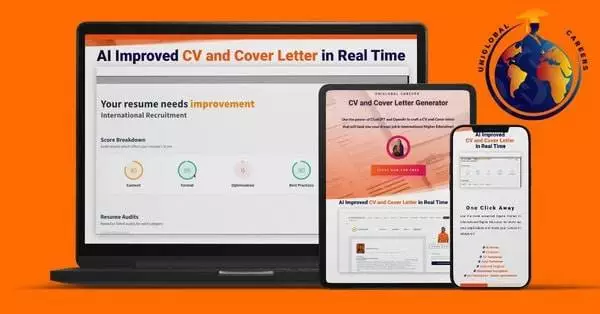In the field of international education, securing a job in international admissions is a highly desirable career path. This role involves evaluating and admitting international students to educational institutions, ensuring their smooth transition into their chosen programs. However, before landing this position, candidates must first pass the rigorous interview process. To help you prepare, this article will explore the most common interview questions for a job in international admissions and provide tips on answering them effectively.
Understanding the Role of an International Admissions Officer
Before delving into the interview questions, it is crucial to have a solid understanding of the role of an international admissions officer. This position requires a multifaceted skill set that combines knowledge of international education systems and admissions procedures with excellent interpersonal and communication skills.
As an international admissions officer, your primary responsibility is to review and assess applications from international students and make informed decisions regarding their admission to the institution. Additionally, you will be tasked with guiding these students through the enrollment process, ensuring that they have all the necessary documents and information.
Key Responsibilities of an International Admissions Officer
One of the first things you may be asked during an interview is to outline the key responsibilities of an international admissions officer. It is essential to demonstrate a clear understanding of the role and highlight your ability to fulfill its requirements.
An international admissions officer is responsible for:
- Evaluating and processing applications from international students
- Assessing students’ academic qualifications and English language proficiency
- Providing guidance and support to prospective students throughout the application process
- Collaborating with other university departments to ensure a seamless transition for admitted students
- Staying up to date with international education trends and developments
Required Skills and Qualifications for the Role
During the interview, you may also be asked about the skills and qualifications necessary to excel as an international admissions officer. This is an opportunity to showcase your expertise and highlight your suitability for the role.
Some essential skills and qualifications for an international admissions officer include:
- Strong interpersonal and communication skills
- Knowledge of international education systems and admissions procedures
- Attention to detail and excellent organizational skills
- Ability to work effectively in a multicultural and diverse environment
- Proficiency in foreign languages (if required by the institution)
Preparing for the International Admissions Interview
Now that you have a solid understanding of the role and its requirements, it is time to prepare for the interview itself. Thorough preparation is essential to ensure that you can confidently answer the questions that may come your way.
Researching the Institution
Before the interview, take the time to research the institution you are interviewing with. Familiarize yourself with its mission, values, programs, and any recent news or initiatives. This knowledge will enable you to speak about the institution passionately and demonstrate your genuine interest in being a part of their admissions team.
When asked why you want to work for the institution, be prepared to highlight specific aspects that align with your own values and career goals.
Understanding the International Education Landscape
In addition to researching the institution, it is also essential to understand the broader international education landscape. Stay updated on trends, challenges, and opportunities within the field. This will demonstrate your commitment to professional growth and your ability to adapt to changes in the industry.
During the interview, you may be asked to discuss current issues or changes impacting international admissions. Use this opportunity to showcase your knowledge and articulate your thoughts on these matters.
Most Common Interview Questions for International Admissions Jobs

Questions about Your Experience and Skills
One of the primary areas of inquiry during the interview will be your experience and skills. Expect questions such as:
- “Tell us about your previous experience in international admissions.”
- “How do your skills and qualifications align with the requirements of this role?”
- “Can you provide an example of a challenging situation you faced and how you resolved it?”
Prepare thoughtful and concise responses that highlight relevant experiences and skills. Use specific examples to demonstrate your ability to handle various situations effectively.
Questions about Your Understanding of the Role
Another area of focus in the interview will be your understanding of the role of an international admissions officer. Common questions in this category include:
- “What do you see as the main challenges in international admissions?”
- “How would you handle a situation where a student’s academic qualifications do not meet the requirements?”
- “What strategies would you implement to enhance the diversity of the admitted student population?”
Be sure to show your knowledge of the field and your ability to think critically about the challenges and opportunities within international admissions.
Scenario-Based Questions
Scenario-based questions are designed to assess your problem-solving skills and your ability to think on your feet. Expect questions such as:
- “How would you handle a parent who is unhappy with the outcome of their child’s application?”
- “What steps would you take to increase enrollment from certain regions or countries?”
- “If faced with an unrealistic deadline, how would you prioritize your tasks?”
In your responses, demonstrate your ability to remain calm under pressure and your aptitude for finding creative solutions to challenging situations.
Tips for Answering Interview Questions

Using the STAR Method
When answering interview questions, the STAR method can be highly effective. STAR stands for Situation, Task, Action, and Result. Begin by describing the situation or challenge you faced, then explain the task you needed to accomplish. Next, outline the action you took to address the issue and conclude with the result or outcome.
This structured approach helps you provide concise and comprehensive answers that highlight your problem-solving abilities and the positive impact you had in previous positions.
Showcasing Your Knowledge of the Institution and Role
Throughout the interview, find opportunities to showcase your knowledge of the institution and the role of an international admissions officer. Incorporate this knowledge into your responses to demonstrate your enthusiasm for the position and your potential contributions to the organization.
For example, if asked about your long-term goals, you could mention your interest in staying up to date with international education trends and using these insights to enhance the institution’s international recruitment strategies.
Post-Interview Follow-Up
Sending a Thank You Note
After the interview, it is important to follow up with a thank you note or email to express your gratitude for the opportunity and reiterate your interest in the position. This gesture demonstrates professionalism and leaves a positive impression on the interviewers.
Keep the thank you note concise and specific, mentioning key points discussed during the interview and expressing your confidence in your ability to excel in the role.
When and How to Follow Up After the Interview
If you do not hear back from the institution within the provided timeframe, it is acceptable to follow up with a polite inquiry about the status of your application. However, be cautious not to appear pushy or overly eager.
When following up, keep your message brief, thanking them for their time and reiterating your interest in the role. This serves as a gentle reminder of your enthusiasm without putting unnecessary pressure on the hiring team.
In conclusion, preparing for an interview in international admissions requires a solid understanding of the role, extensive research on the institution, and thoughtful responses to common interview questions. By showcasing your knowledge, experience, and problem-solving skills, you can position yourself as an ideal candidate for this exciting and rewarding career path.


